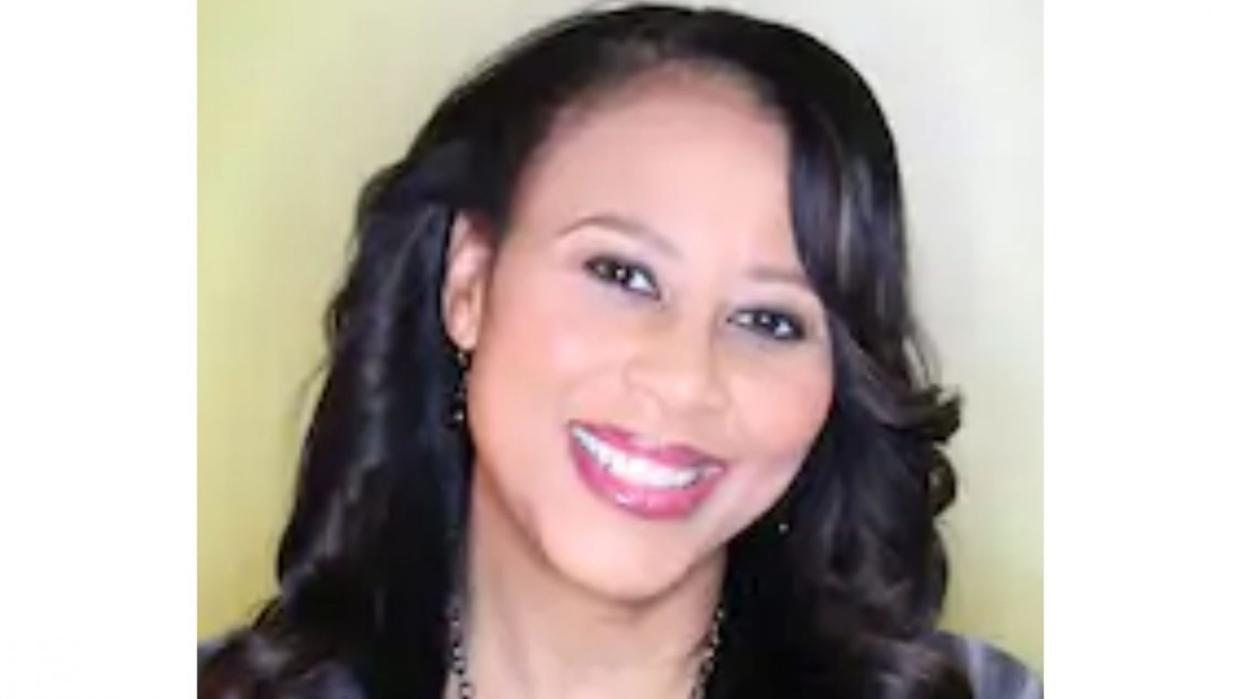Columnist Michelle Singletary Says You Should ‘Learn To Hate Debt’

- Oops!Something went wrong.Please try again later.
Michelle Singletary is a personal finance columnist for The Washington Post. Her column, “The Color of Money,” appears twice a week in dozens of newspapers across the country. Singletary is a frequent contributor to NPR and regularly appears on CNN as well. She has written three books, and her fourth book, “What To Do With Your Money When Crisis Hits,” will be published in May.
Recognized by GOBankingRates as one of Money’s Most Influential, here she shares her biggest investing regret, the old-school budgeting tool she swears by and why you should cultivate a “healthy hatred” of debt.
What advice would you give your younger self about money?
The younger Michelle was scared to death of investing. It was a fear I inherited from my grandmother, Big Mama. I like to joke that the only bond she held was the bond adhesive for her dentures. I now understand why my grandmother, who raised me, was so afraid. She lived during a time when Blacks couldn’t trust Wall Street, and she saw how systemic racism impacted the ability of Black Americans to earn enough to invest.
Eventually, I felt comfortable investing in bonds in my 401(k), but it was much too [conservative] for a young investor in her late 20s. I missed out on an incredible amount of gains investing only in bonds. So, I would tell that young Michelle to up her investment game and get into equities. Eventually, I did, and it’s paid off handsomely with a 401(k) that has performed brilliantly.
What is the best thing you did to improve your own financial wellness?
The one thing I did from the time I started my first job tutoring at 14 was to set aside money from every paycheck I’ve received. Every. Single. One. In most cases, it was at least 10%. My ability to save has been my saving grace when life happens and throws you a financial curveball. It was from my savings that I helped take care of my disabled brother from the time he was 18 until he died at 32.
The habit of saving creates a cushion that can help you weather financial storms. As my grandmother, Big Mama, used to say, “You need a rainy-day fund because it will always rain.”
What are some simple strategies anyone can use to ensure they are allocating their money smartly?
You’ve got to start with a goal. You need something to motivate you to save. People always ask me what budgeting tool I use or recommend. And my answer is always, “pen and paper.” It’s not the app or tool that makes you stick to a budget. It’s like having a top-of-the-line exercise bike — without a plan, it just becomes a place to drape your clothes. The tool doesn’t drive you. It’s your passion to be debt-free, or save for retirement or to send your children to college debt-free.
Once you have the goal in mind and the motivation to achieve that goal, then the tool is just an aid. So write down on an index card what you what to do with your money. My husband and I wanted to send all three of our children to college without any debt — for them or us. And we achieved that not by using some app, but by regularly — every month from the time they were tiny tots — putting money in a 529 plan. Having that vehicle to save was great but without a plan and motivation, we would not have funded [it]. Now all three of our kids will graduate without a dollar in college debt. And it all started with that goal.
What is the biggest mistake people make when it comes to budgeting and debt management?
Americans are living the American dream on borrowed dollars. Stop living beyond your means by using debt. Learn to hate debt. If debt were a person, I’d slap it. If you learn to have a healthy hatred of debt, you can manage your budget better because less of your income would be used to service debt.
The biggest mistake people make is thinking debt is an OK tool. It’s not. It may be necessary to buy a car or home, but make no mistake — it’s like having a 50-pound weight on your financial shoulders.
Jaime Catmull contributed to the reporting for this article.
More From GOBankingRates
This article originally appeared on GOBankingRates.com: Columnist Michelle Singletary Says You Should ‘Learn To Hate Debt’

